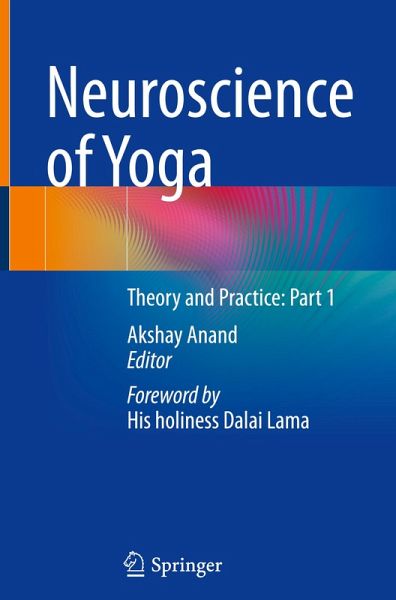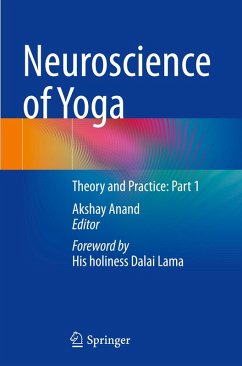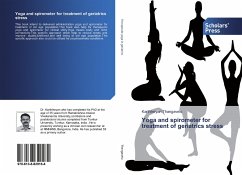
Neuroscience of Yoga
Theory and Practice: Part 1
Herausgegeben: Anand, Akshay; Nadholta, Pooja

PAYBACK Punkte
53 °P sammeln!
This book covers experimental theory and practice of yoga that have enhanced its neuroscientific understanding. This is an excellent handbook for the researchers in the field of evidence-based integrative health. It encompasses traditional and modern tools used in neuroscience. It also provides information for the modern biologists, physicians and policymakers, of how mind-body complexities in neuroscience, mental health and preventive healthcare can be useful for health and disease. It serves as a guide for integrative health practitioners, patients, educationists, philosophers, graduate stud...
This book covers experimental theory and practice of yoga that have enhanced its neuroscientific understanding. This is an excellent handbook for the researchers in the field of evidence-based integrative health. It encompasses traditional and modern tools used in neuroscience. It also provides information for the modern biologists, physicians and policymakers, of how mind-body complexities in neuroscience, mental health and preventive healthcare can be useful for health and disease. It serves as a guide for integrative health practitioners, patients, educationists, philosophers, graduate students and faculty pursuing research in the field of biology, complimentary medicine, and other alternative therapies.
The chapters in this book also serve as a comprehensive resource for clinical trials in Yoga. In addition, flow charts and illustrations have been provided to understand how healthy brain ageing can be achieved.
The chapters in this book also serve as a comprehensive resource for clinical trials in Yoga. In addition, flow charts and illustrations have been provided to understand how healthy brain ageing can be achieved.












